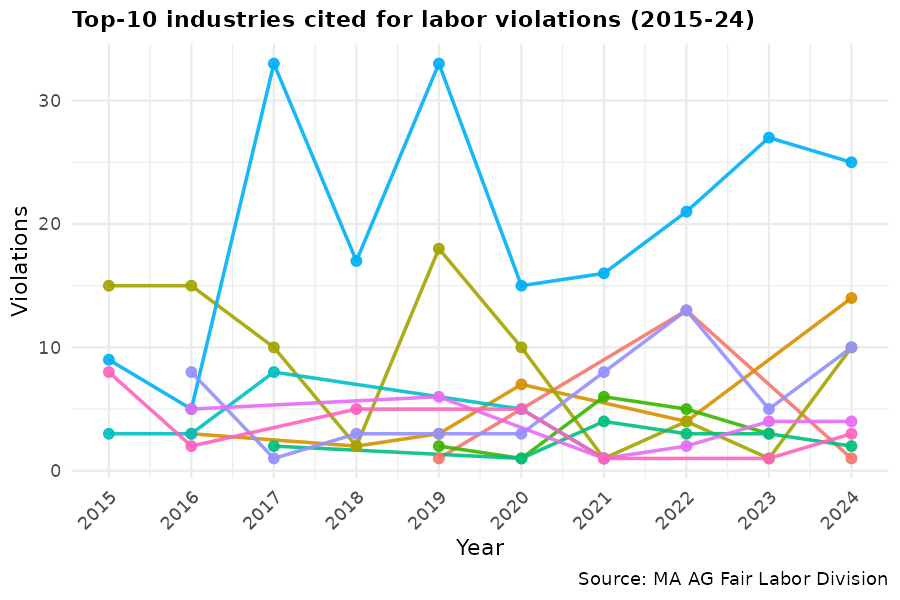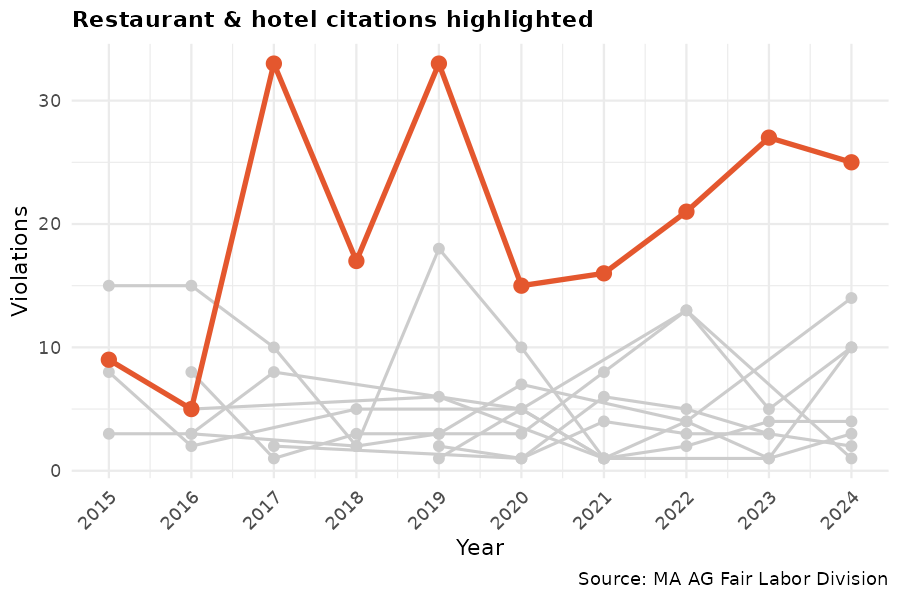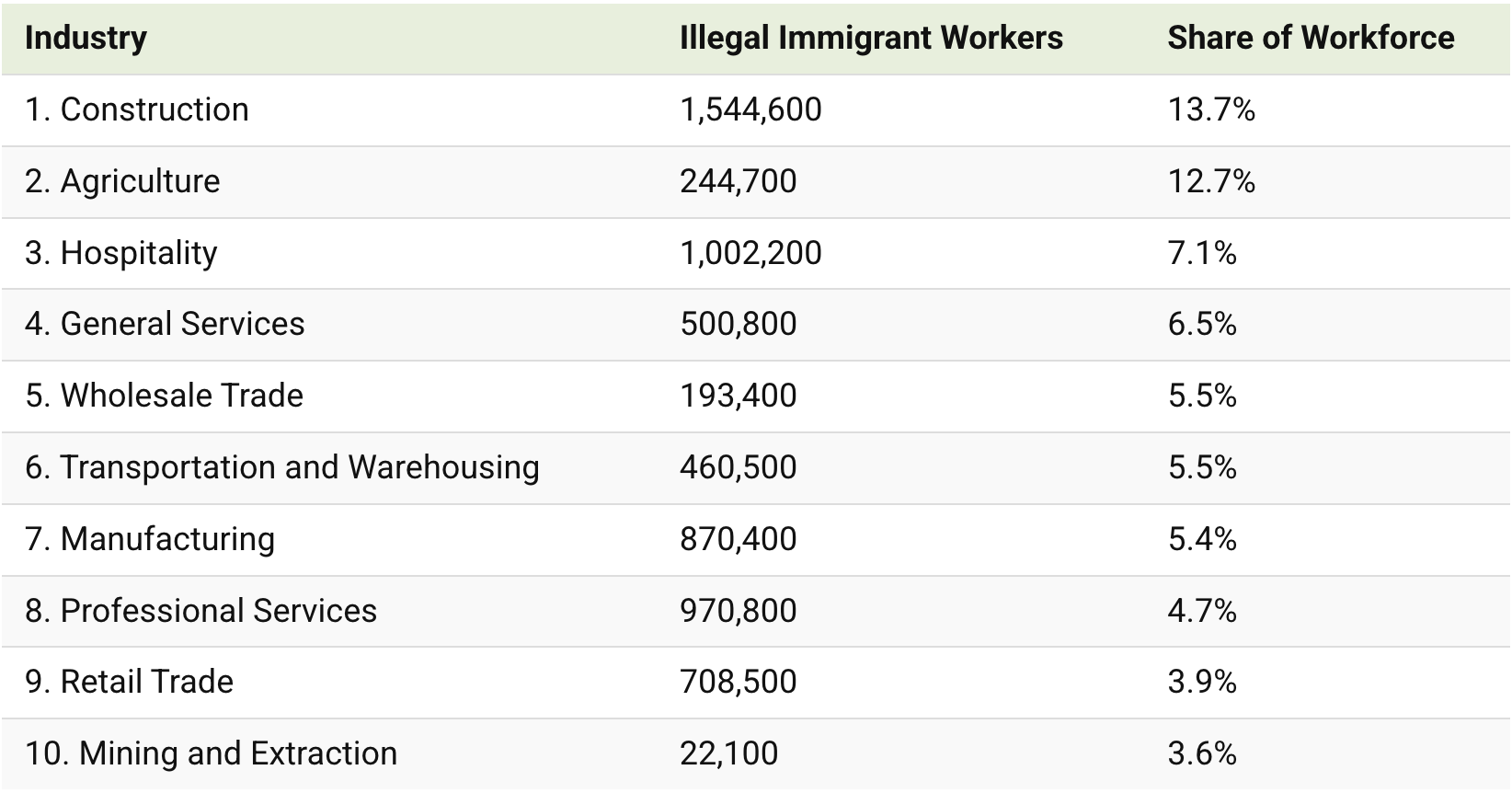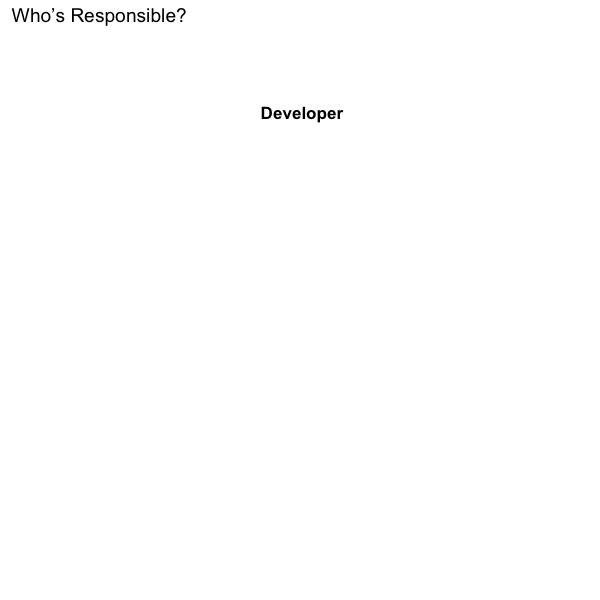Companies Fined for Labor Violations in MA
Imagine working 40 hours a week, counting on your paycheck to cover rent and groceries, only to find it delayed or incomplete.
How many workers are affected?
Massachusetts employs nearly 4 million people, yet wage theft continues to rob workers of an estimated $1 billion annually. That’s enough money to cover nearly 27,700 years of rent at the state’s average monthly rate, or provide a year’s worth of groceries for nearly 120,000 families.
In 2024 alone, Massachusetts employers faced over $5.1 million in fines solely for late wage payments–a fraction of the true scale of wage theft. Despite the enormity of this loss, enforcement remains weak, disproportionately harming immigrants, people of color, low-wage, and undocumented workers.
The most blatant form of wage theft is also the simplest: not paying workers at all. This form of wage theft is especially rampant in industries like construction, restaurants, and hospitality.
“For whatever reason, you know, staffing agencies do the minimum they can,” Carrasco added. “Because the less money they pay the workers, the more money they make on each contract. And it’s sort of a race to the bottom between staffing agencies to get client companies.”
This cost-saving strategy leads to systematic underpayment, particularly in fast-growing sectors like warehousing, food processing, and janitorial services. Workers are often stripped of benefits and legal protections, misclassified as independent contractors, or shuffled between subcontractors until accountability disappears entirely.
Lisa Clauson, interim director of Community Labor United, explained how construction sites use layers of subcontractors to avoid liability: “It enables them, when they get caught, to say,’ Oh, we had no idea that company was doing that.’“
“At the end of the day, it’s not the attorneys that make workplace changes,” Carrasco said. “It’s the workers themselves.”












